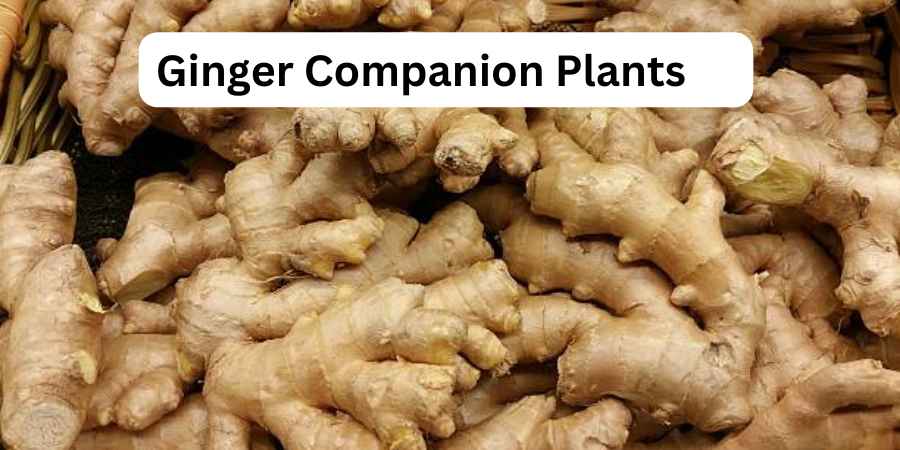Last Updated on June 2, 2025 by Jocelyn
Ginger grows well with turmeric, lemongrass, chili peppers, cilantro, and beans. These companions help reduce pests, improve soil, and make the most of garden space.
Keep ginger away from garlic, onions, and other alliums since they may slow its growth.
Ginger is a tropical plant native to Asia’s equatorial regions. It does best in USDA Zones 9 to 11 and is known for its flavorful roots and aromatic leaves.
I’ve learned that with the right care, like growing in containers, placing them in light shade, and keeping the soil moist, ginger can grow successfully even in cooler areas.
Companion planting supports ginger’s growth while encouraging a healthier garden.
Table of Contents
ToggleBest Companion Plants of Ginger
When planting ginger, it’s important to choose the right companion plants. These plants can have positive effects on the growth of your ginger.
For example, they can help repel pests that might otherwise damage your ginger. Additionally, some plants can add increased nutrition to the soil, which benefits ginger’s overall health.
From my experience, I highly recommend choosing these companion plants to ensure your ginger’s better growth.
1. Beans
In my garden, I’ve noticed that beans are amazing companions for ginger. They thrive in well-drained soil and love basking in ample sunlight.
These leguminous plants are real wonders, enhancing the vitality of the garden by adding nitrogen to the soil. The greenery they bring is a bounty, providing sustenance and making the garden a lush haven.
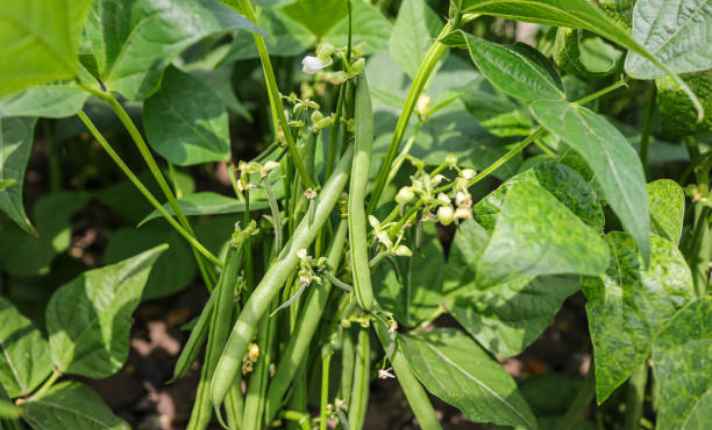
2. Pea
When growing ginger, it’s important to consider companion plants like peas. Peas grow in various soil conditions, needing well-drained, fertile soil with a pH range of 6.0 to 7.5. They embody adaptability and vigor, flourishing with full sunlight and consistent moisture.
I’ve noticed in my own garden that peas not only enhance the fertility of the soil by fixing nitrogen but also promote the overall health of nearby plants. Their lush foliage and prolific growth provide invaluable benefits.
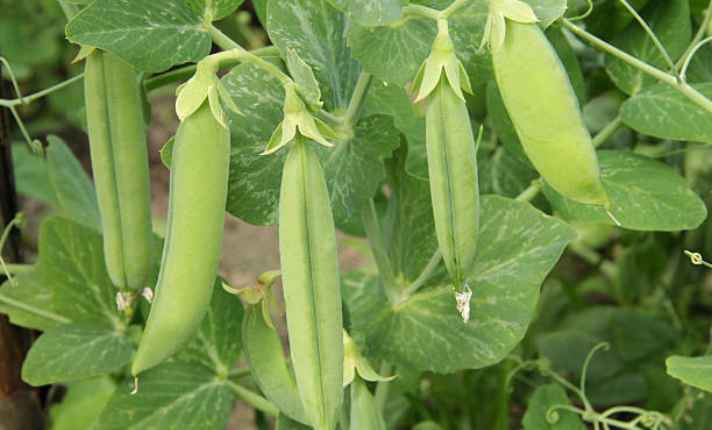
3. Cilantro
Growing cilantro next to ginger is a great idea because both plants can thrive in similar conditions. Cilantro prefers well-drained soil that is fertile and enriched with organic matter, just like ginger.
Both plants need adequate moisture and sunlight to grow well. When both are planted together, they can create a lush growth with abundant foliage.
Cilantro also attracts beneficial insects that help improve the garden’s biodiversity and can help protect your ginger.
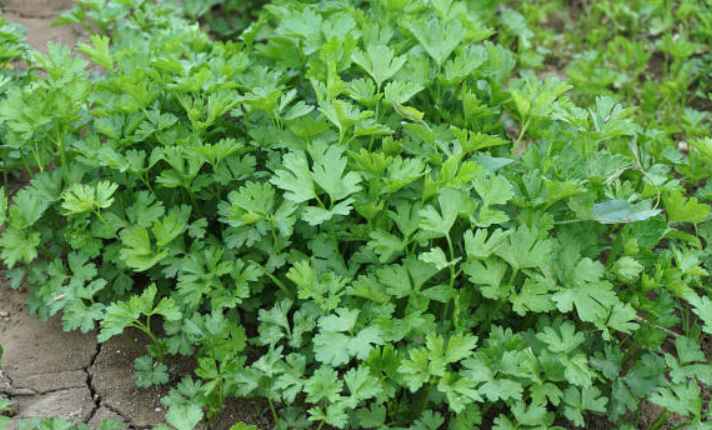
4. Garlic
If you want to grow garlic as a companion plant for ginger, it provides many benefits. Garlic has a strong aroma that helps deter pests and acts as a natural fungicide against soil-borne diseases.
It flourishes in well-drained, fertile soil with a pH range of 6.0 and 7.5 and needs consistent moisture and adequate sunlight for robust growth.
Garlic is also adaptable and invaluable in the development of healthy plants as it supports the bulb growth and strength of its neighboring plants.
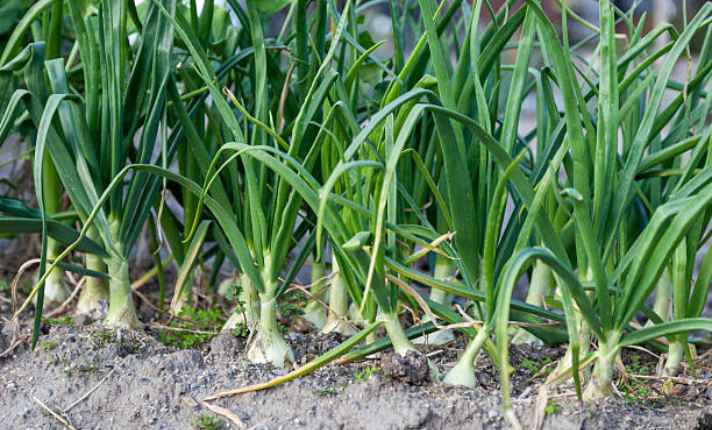
5. Kiwi
Kiwi plants are perfect for gardens, especially with ginger. They flourish in well-drained, slightly acidic soil, basking in sunlight and producing tasty fruits.
They also attract beneficial insects and enrich the soil, making them a beautiful and valuable addition to any garden.
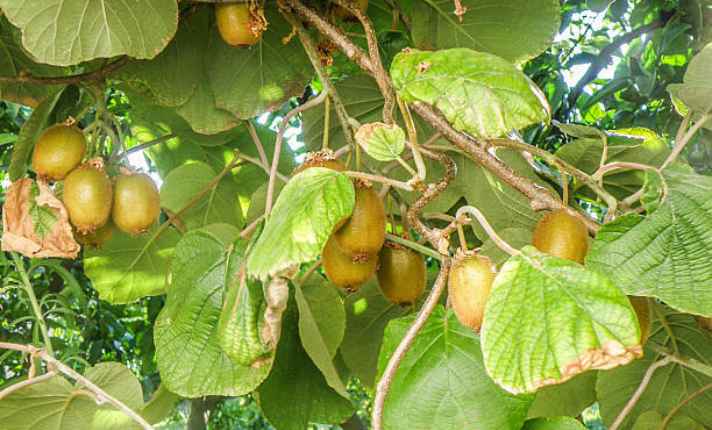
6. Sweet Potato
Growing ginger with sweet potatoes is a smart choice. Sweet potatoes love sandy or loamy soil with a pH range of 5.8 to 6.5. They flourish with full sunlight and consistent moisture, aiding their sprawling vines and root development.
These plants help their neighbors by enhancing soil structure, controlling weed growth, and enriching the soil with nutrients when they decompose.
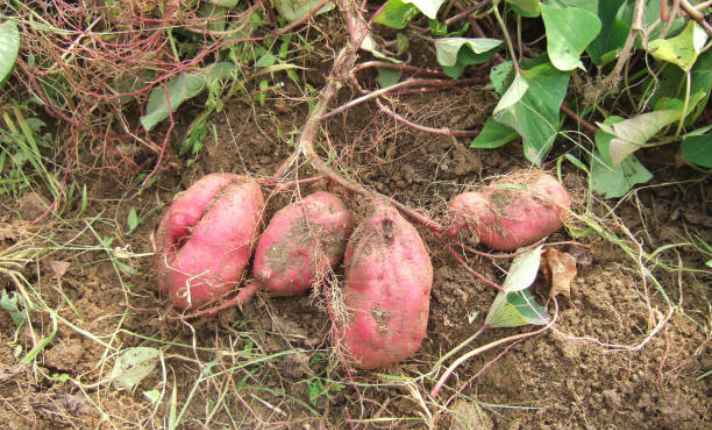
7. Chili Peppers
Chili peppers are great companion plants for ginger. Their fiery nature and vibrant colors not only add beauty but also offer valuable support.
The bushy foliage of chili peppers provides shade and protection, helping to regulate temperature and moisture in the soil.
Their natural repellent properties can deter pests that might damage ginger plants.
With chili peppers as steadfast companions, ginger can thrive in a nurturing environment, producing abundant harvests in a healthy garden.
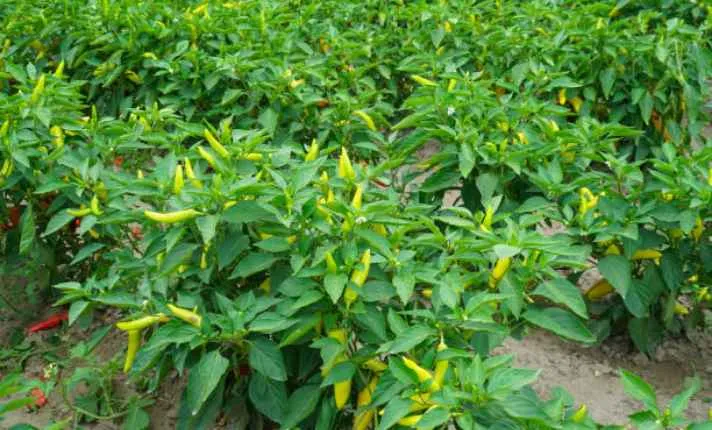
8. Lemongrass
Lemongrass, a fragrant herb, is an excellent companion for ginger plants in the garden. When you grow them together, lemongrass provides shade and protection to ginger, while its aromatic foliage helps to deter pests.
Both plants grow in similar conditions, creating a beneficial environment where ginger can flourish, enhancing the beauty and productivity of your garden.
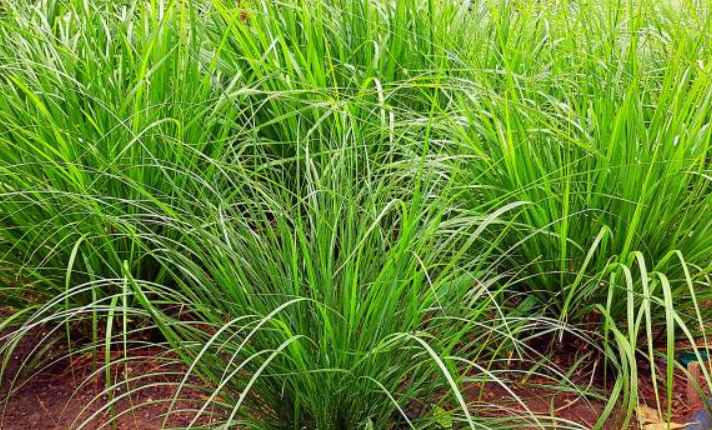
9. Cardamom
Cardamom is a wonderful companion for ginger in the garden. When planted together, they become a dynamic duo that creates a delightful sensory experience with their aroma and flavor.
The lush foliage of cardamom provides shade and protection for ginger, while its aromatic oils help deter pests.
This harmonious ecosystem allows both plants to thrive and become healthier and more robust in each other’s presence, leading to mutual well-being and naturally better growth.
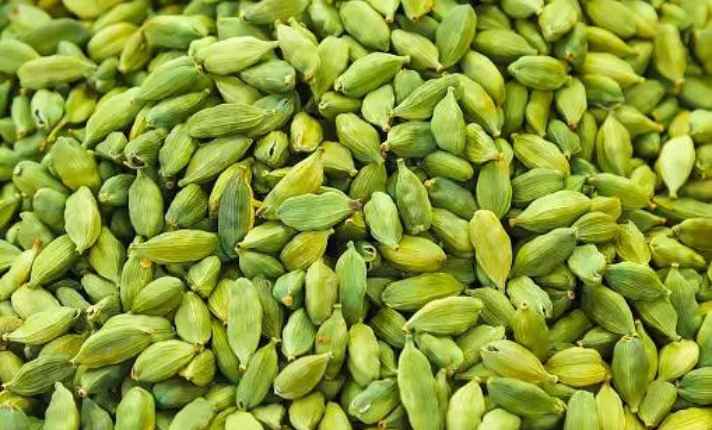
10. Turmeric
Turmeric is a good companion plant for ginger. They grow well together and help each other in the garden. Turmeric enriches the soil and adds a nice flavor to dishes. Their partnership makes the garden more aromatic and earthy.
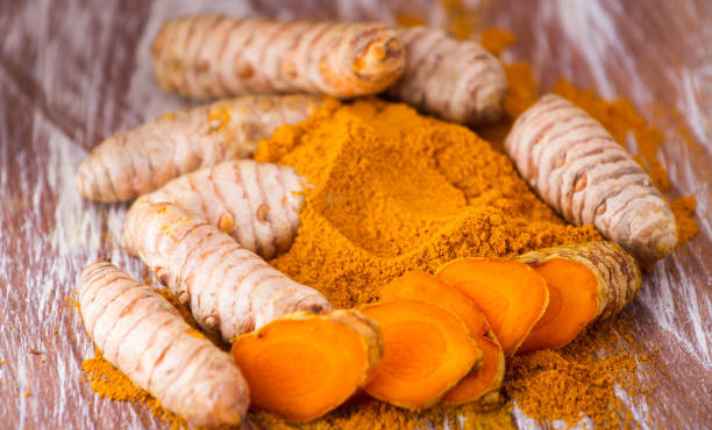
11. Orchids
Orchids and ginger can grow well together because they both love warm and humid places. In my garden, I planted them together, and they both grew beautifully.
Orchids add bright colors next to the green ginger leaves, making the garden look lively. Make sure they get enough light but avoid direct sunlight to keep them healthy.
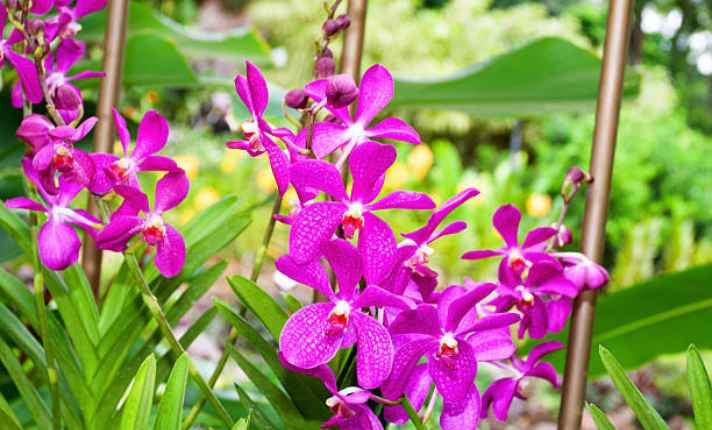
12. Palms
Palms can be great companion plants for ginger. They both love warm and humid conditions. Planting palms near ginger provides shade and helps keep the soil moist.

13. Teak
Planting ginger near teak trees is beneficial. Teak provides shade, acting like an umbrella, helping to keep the soil moist. The deep roots of teak don’t compete with ginger’s shallow roots, making them good neighbors.
Teak leaves also add organic matter to the soil, improving its quality. This creates a perfect microclimate for ginger, keeping it cool and humid. In my garden, ginger grew healthier when planted near teak.
Plants to Avoid Planting Near Ginger
When planting ginger, avoid growing certain plants nearby. These can have detrimental effects on the development of your ginger. Consuming all the nutrients and water, these plants can change the taste of your ginger and appeal to insects.
We recommend not planting these enemy plants to prevent negative outcomes.
1. Tomato
Tomatoes and ginger can be poor companion plants due to competition for nutrients and water, as tomatoes are heavy feeders and can overshadow ginger.
Additionally, tomatoes can increase pest and disease risks for ginger, while their extensive root systems can crowd out ginger’s growth space.
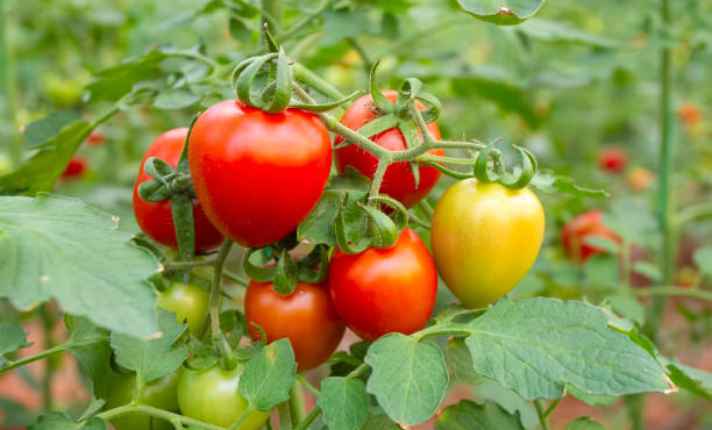
2. Eggplant
Eggplants can be a bad companion plant for ginger due to their high nutrient and water demands, which can outcompete ginger for these essential resources.
Eggplants also attract pests like aphids and spider mites, which can then spread to ginger.
Furthermore, eggplants can grow quite large, potentially overshadowing ginger and limiting its access to sunlight, which is crucial for its growth.
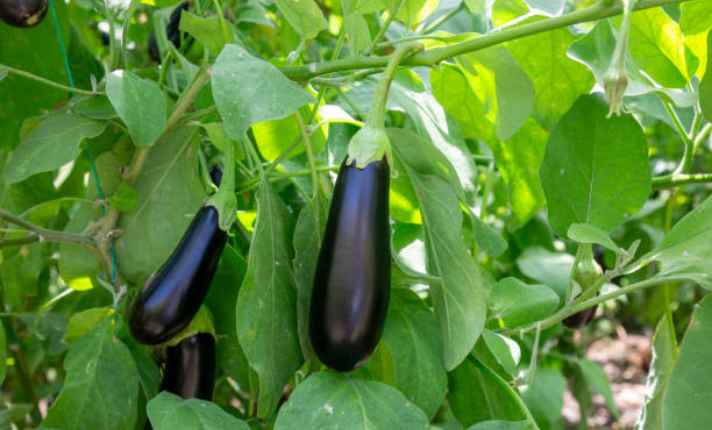
Also, explore my other detailed guides on companion planting:
Growing & Caring Tips for Ginger
Here are some useful tips that will help you grow ginger successfully. Follow these guidelines to ensure a bountiful and healthy ginger harvest.
Preparing Soil for Ginger
- Rich, loamy soil with excellent drainage.
- Add plenty of compost and an all-natural fertilizer.
- Ensure the soil is loosened and amended with organic matter for fertile and nutritious growth.
Planting Ginger in the Ground
- Plant pre-sprouted rhizomes about 6 inches deep in a trench with eyes facing upward.
- Use hilling to cover the stems as they grow and turn pink, similar to growing potatoes.
Watering and Fertilizing Ginger
- Keep soil evenly moist with regular watering.
- Ensure good drainage to prevent rot from heavy, saturated soils.
- Use an all-purpose organic fertilizer.
- Reduce watering in autumn as the temperatures drop.
Weeding and Mulching Ginger
- Remove weeds to eliminate competition for nutrients.
- Use mulching with leaf mold or straw to keep the soil moist and suppress weeds for successful growth.
Harvesting, Storing, and Drying Ginger
- Harvest ginger when frost is in the forecast for fall.
- Use a garden fork to gently pry the rhizomes from the soil without piercing.
- Rinse the rhizomes and let them dry on a towel or cooling rack.
- Store them in the fridge or freezer.
- Break them into manageable pieces and keep them in a freezer bag or jar.
- Ginger can also be dehydrated and ground into a powder for long-term enjoyment.
FAQ’s
Q: What Is the Best Area to Plant Ginger?
A: Ginger loves hot, humid places with rich soil. It grows best in southern locations with full sun or partial shade.
During the growing season, make sure to Fertilize the plants and provide plenty of nutrients. If you live in a cool climate, find a spot with fertile soil that gets full sun.
Q: What Makes Ginger Grow Faster?
A: To help your ginger grow quickly, make sure to give it plenty of water when the plant is actively growing. Use well-draining soil so the rhizomes don’t sit in soggy conditions.
Be careful not to overwater. As the temperatures get cool, you should reduce watering to keep your ginger healthy.
Q: How Much Space Does a Ginger Plant Need?
A: Plant ginger pieces 2 feet apart with buds pointing upward and 2 to 4 inches deep. Ginger plants can grow tall, so space them 6 to 8 inches apart for smaller gardens.
Q: What Herbs Go Well With Ginger?
A: Ginger grows well with coriander, parsley, basil, cumin, cinnamon, cardamom, turmeric, cashew, macadamia, pistachio, pecan, and bergamot.
Q: What Vegetables Pair With Ginger?
A: Ginger pairs well with many vegetables like carrots, green beans, radishes, broccoli, cabbage, peppers, cucumber, peas, okra, and eggplant.
Conclusion
Growing ginger in your garden can be a rewarding experience, especially when you pair it with the right companion plants. Through research and personal gardening, I’ve found that certain plants can significantly benefit ginger by enhancing soil health and deterring pests.
Companion plants can improve soil nutrients, such as nitrogen levels, and create a more balanced ecosystem that promotes ginger growth.
